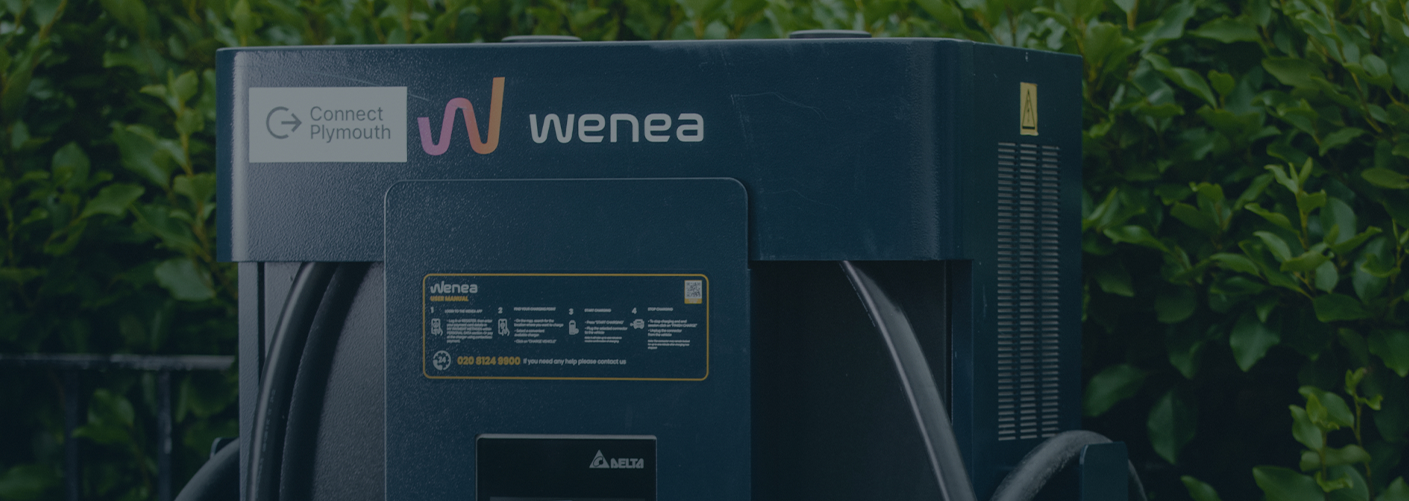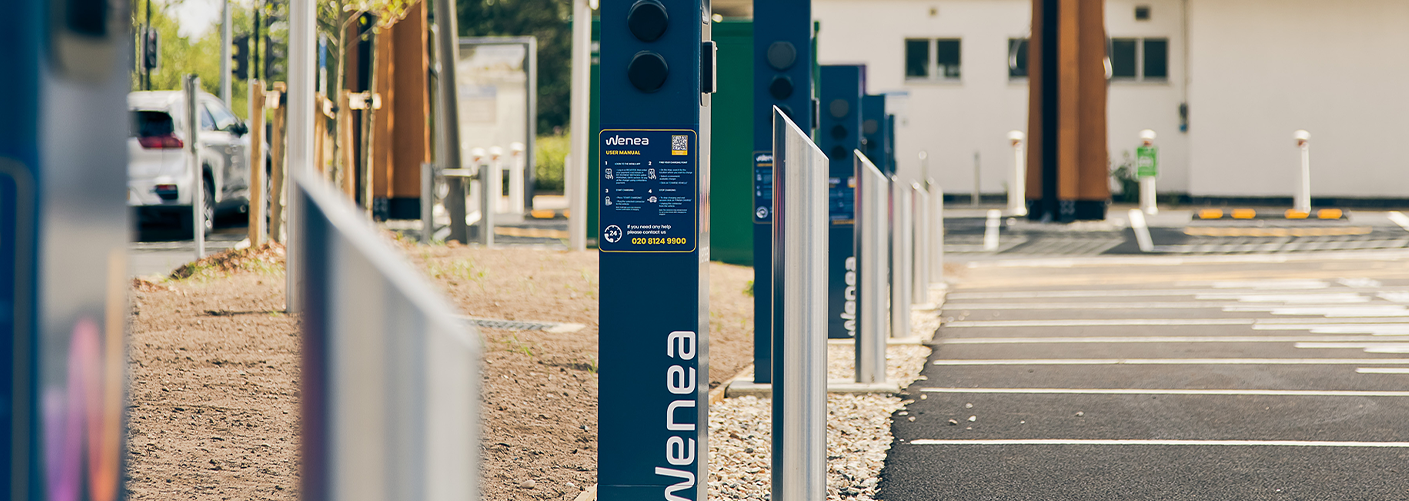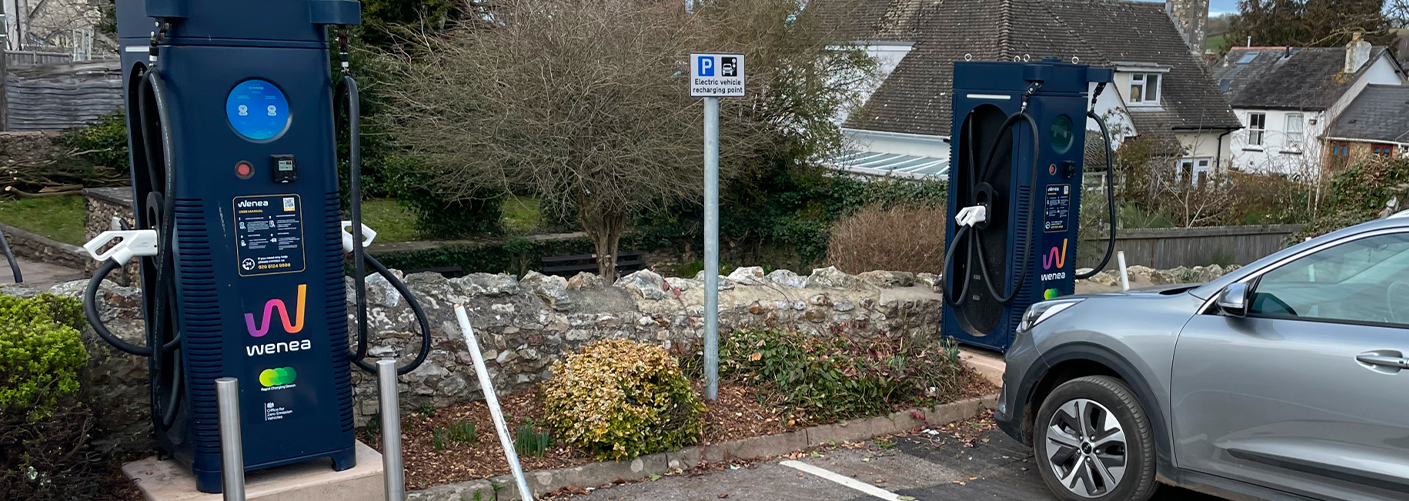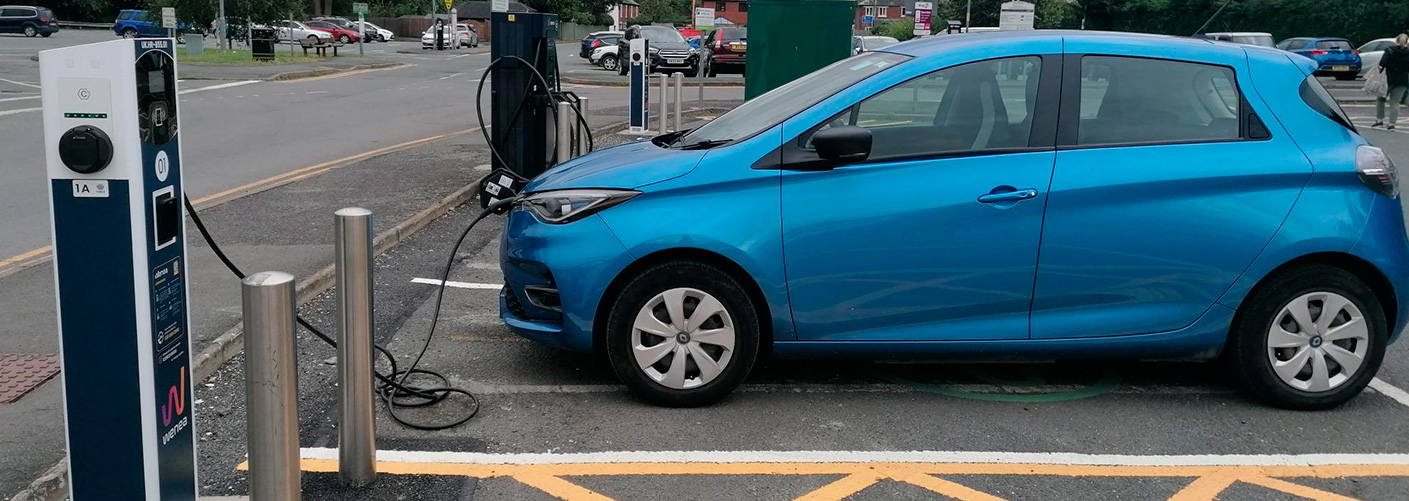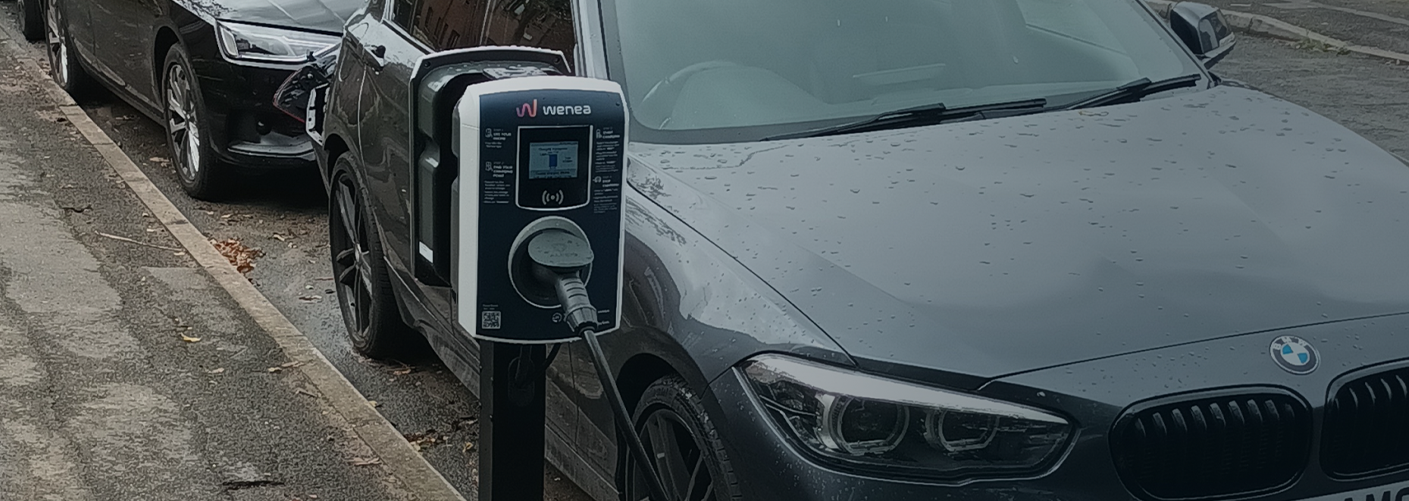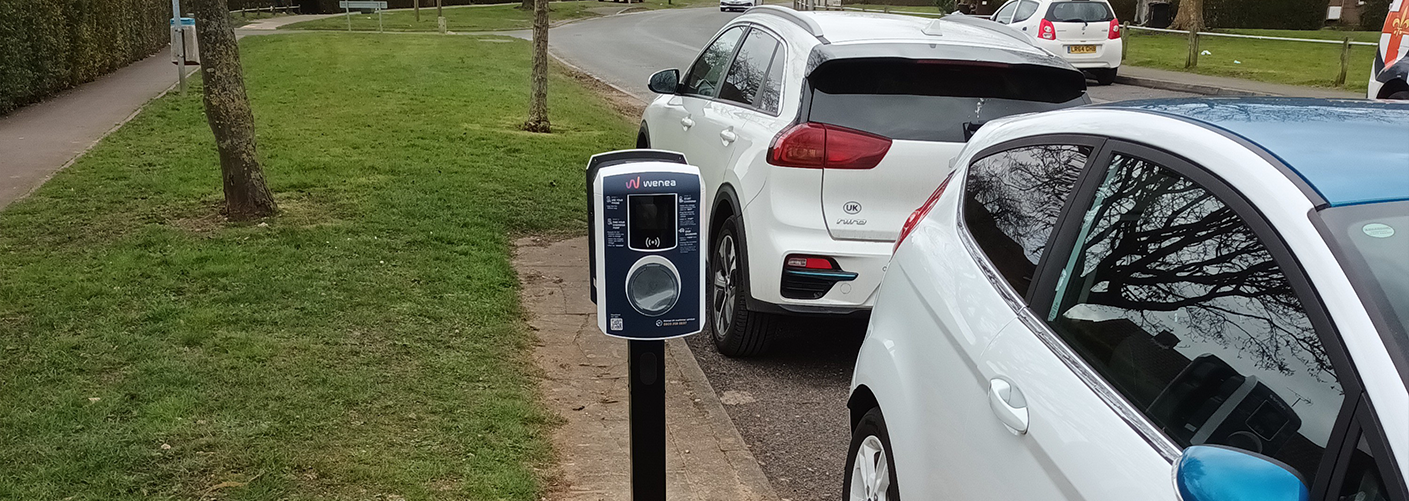This is a community focused project supported by government funding to bridge the economic viability gap in EV charging infrastructure in the Midlands. By working closely with local authorities, the project ensures that chargers are strategically placed in locations that are convenient and accessible to, based on comprehensive research and community engagement.Our goal is to make EV charging more accessible and affordable for everyone in the Midlands.
Why does the Midlands need this?
Our approach is grounded in the insights and feedback from the Midlands’ residents. Through surveys and public consultations, and extensive research, the local authorities involved in this project gained valuable data indicating where there is likely to be a present and future need for EV charging, and what is needed from charging infrastructure. This information has guided our decisions, ensuring that the chargers we install are not only strategically placed but also truly equiped to meet the needs of the community.
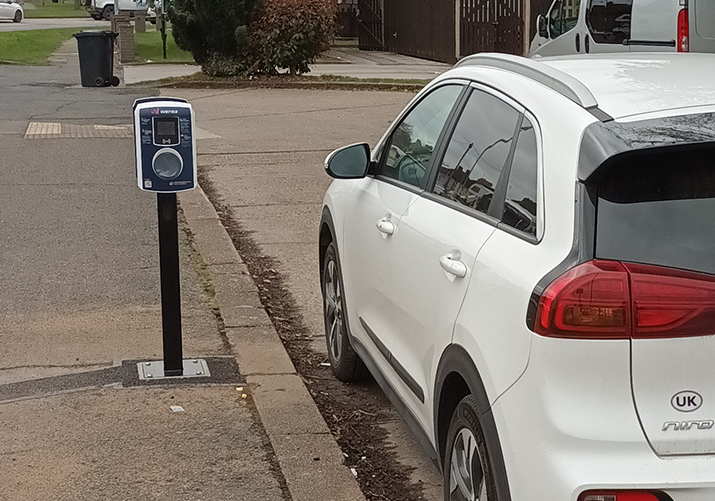
Find your closest Wenea charger in the Midlands
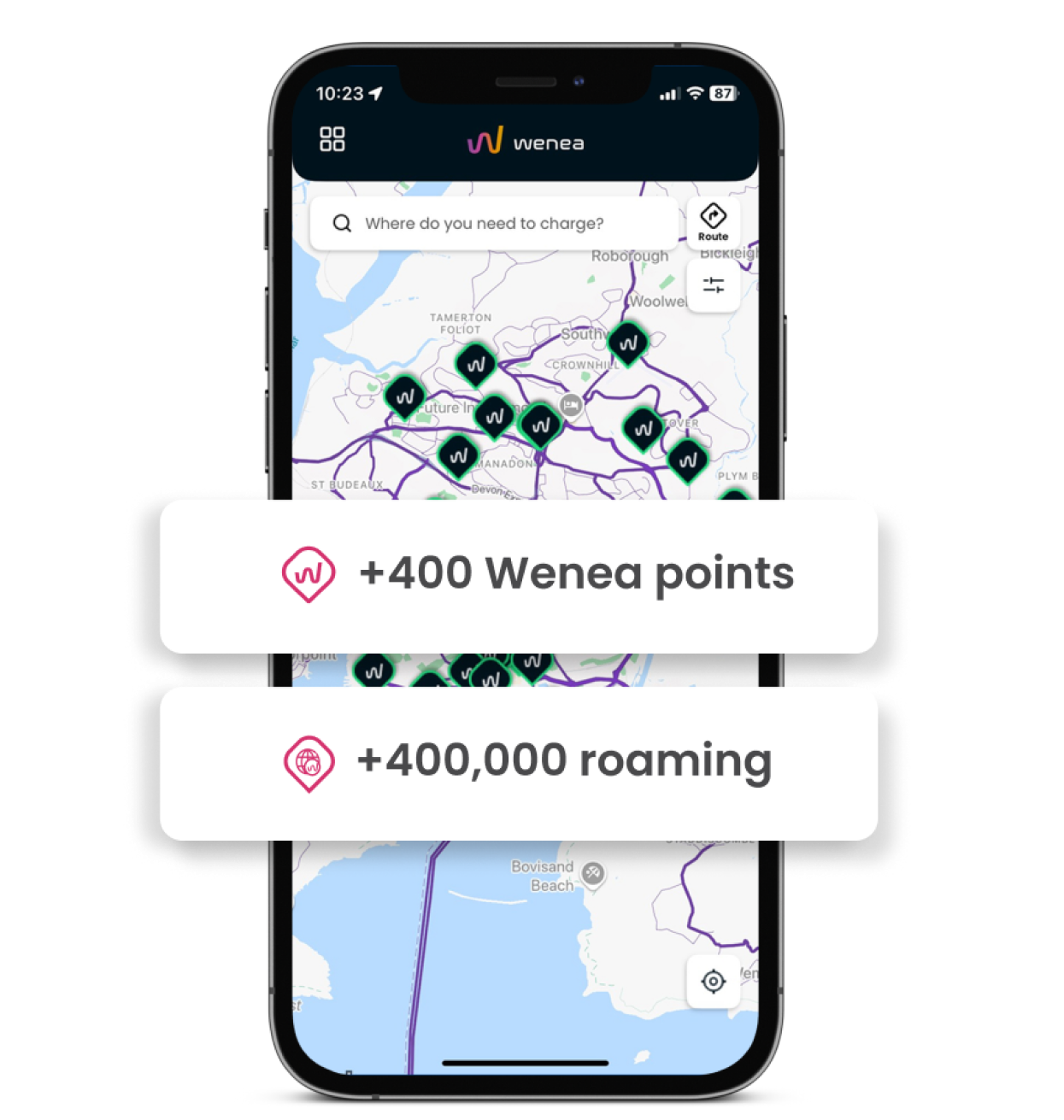
Our charging stations are more than just infrastructure; they are part of a community-led initiative to make EV charging accessible across the Midlands. In collaboration with our local authority partners, we’ve carefully chosen locations based on public feedback and several years of research, ensuring that chargers are placed where they are most needed. This project is about bringing reliable EV charging infrastructure closer to home, making it easier for everyone to embrace cleaner transportation, not just those that can charge on their driveway.
The locations of charge points have been decided in partnership with the local authorities, identifying the areas with space for on-street EV charging, which are places with many residences less likely to have access to private off-street parking.
Who is involved in this project?
Wenea
Wenea is a prominent provider of electric vehicle charging solutions, committed to expanding the accessibility and convenience of EV charging infrastructure. By deploying advanced charging stations across the Midlands, Wenea aims to support the region’s transition to sustainable transportation. Our mission is to facilitate a cleaner, more connected future by ensuring that EV drivers have access to reliable and efficient charging points wherever they need them.
Gamma Energy
Gamma Energy is a leading expert in energy infrastructure, specialising in the installation and maintenance of advanced EV charging stations. With a strong track record of delivering safe, high-quality and reliable energy infrastructure projects, Gamma Energy is proud to play a crucial role in the deployment of Wenea’s EV chargers across the Midlands. Gamma’s expertise ensures that every installation meets the highest standards of safety, efficiency, and reliability, with the ultimate goal of contributing to the sustainable growth of EV infrastructure.
EV Infrastructure
The First Midlands EV Infrastructure Consortium (FMEVIC) is a dynamic consortium dedicated to enhancing transportation infrastructure and connectivity across the Midlands. By selecting Wenea to deploy state-of-the-art EV charging infrastructure, the FMEVIC consortium aims to support regional adoption of EVs, generating economic and environmental benefits for the region. The consortium partners are all aligned with the delivery partner’s broader objectives of improving transport links, reducing carbon emissions and air pollution, and fostering economic development in the Midlands, ensuring a brighter and more connected future for the region.
What is the LEVI pilot scheme?
The LEVI Scheme is a government-funded initiative designed to support the development of EV charging infrastructure in residential areas. As part of the scheme, local authorities can apply for funding to install charging points in publicly accessible areas, such as on-street parking bays and public car parks. The aim of the scheme is to make everyday charging more affordable and convenient for everyone.
“We have seen the EV market growing and people transition from petrol powered vehicles to electric vehicles. With this increased demand, we must adjust our charging network and build new infrastructure. We are working closely with the local authorities to bring publicly available chargers that are more accessible in the communities they are needed.”
Oliver Brabner
Project Manager
Our projects
More than 25 local authorities are working with us












